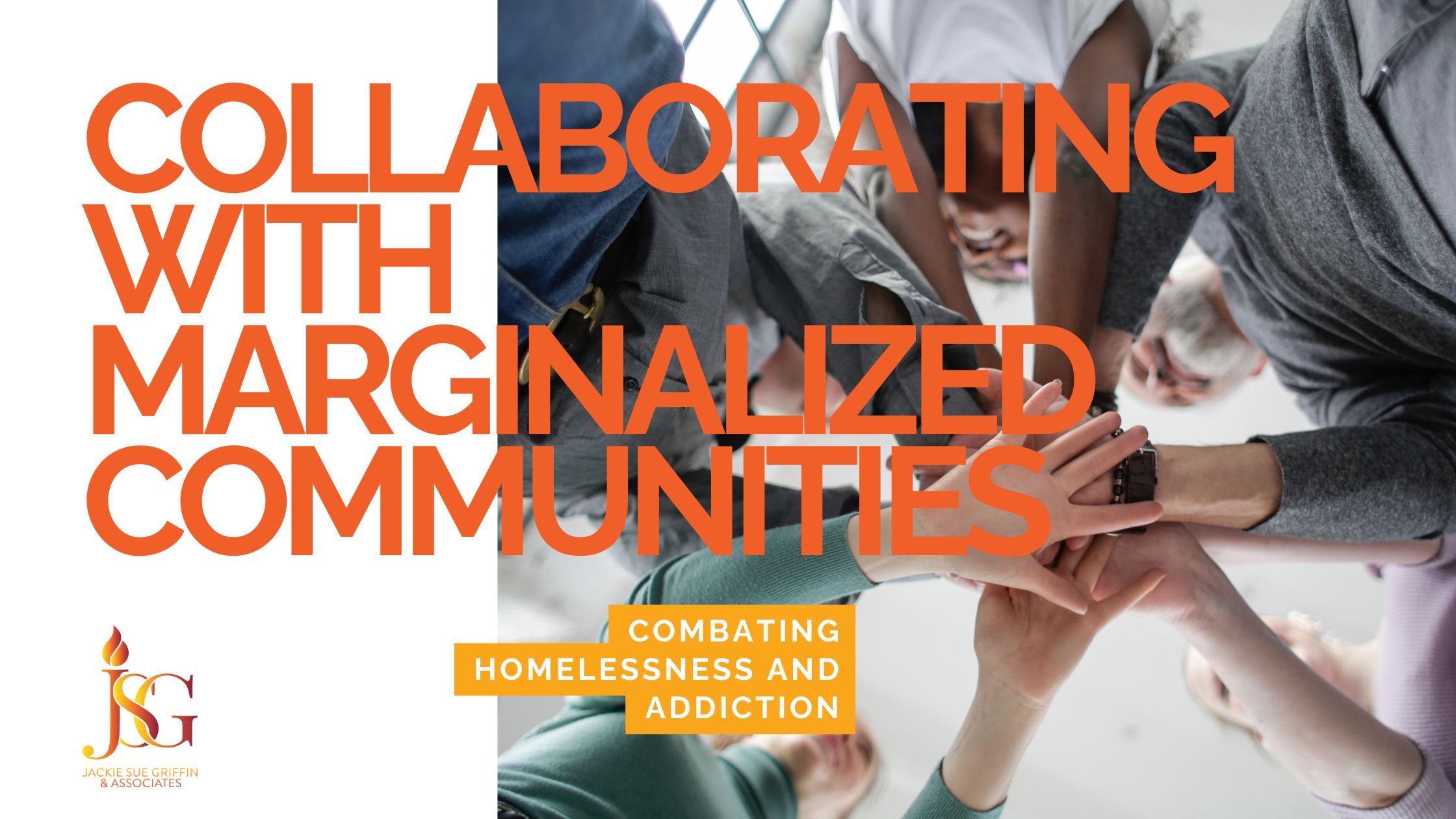
17 Feb Beyond Awareness: Collaborating with Marginalized Communities to Combat Homelessness and Addiction
We all know that homelessness and addiction are serious challenges, but what often gets overlooked is how deeply connected they are—especially for marginalized communities. It’s not just about raising awareness; it’s about working hand-in-hand with those directly impacted to find real solutions. By fostering partnerships and empowering community voices, nonprofits can create sustainable solutions that drive real change.
Understanding the Intersection of Homelessness and Addiction
The relationship between homelessness and addiction isn’t as simple as cause and effect. Many people experiencing homelessness turn to substances as a way to cope with trauma, mental health struggles, or the daily stress of not having a stable place to live. On the flip side, addiction can lead to job loss, financial instability, and broken support systems, making homelessness more likely.
Marginalized groups, including people of color, LGBTQ+ individuals, and those with disabilities, often encounter systemic barriers that exacerbate these issues. Discrimination, lack of access to healthcare, and limited economic opportunities further entrench cycles of poverty, homelessness, and addiction. Recognizing these intersections is essential for developing inclusive and effective strategies.
Moving From Awareness to Action
While awareness campaigns are important, they must be accompanied by action-oriented initiatives that address root causes. Nonprofits can make a greater impact by shifting their focus from solely educating the public to directly engaging with marginalized communities. This involves listening to their needs, amplifying their voices, and involving them in the decision-making process.
Building Trust Through Collaboration
For nonprofits to be effective, trust is everything. That starts with cultural competency, a real commitment to equity, and making sure programs are welcoming and inclusive. This includes hiring diverse staff who reflect the communities being served, providing training on a regular basis, and ensuring that programs are inclusive and accessible. Engaging community members as collaborators rather than beneficiaries and co-designing programs with individuals who have experienced homelessness or addiction also ensures that initiatives are grounded in real-world insights and address actual needs. When community members are treated as equal partners—not just recipients of services—there’s a greater sense of shared purpose. That leads to solutions that actually work.
Addressing Systemic Barriers
Combating homelessness and addiction requires tackling systemic inequities. This includes advocating for policies that expand affordable housing, improve access to mental health and addiction treatment, and address income disparities. Nonprofits can play a key role by leveraging their platforms to push for legislative change and mobilizing community support around these issues.
Partnerships with other organizations, government agencies, and businesses are also crucial. Collaborative efforts can pool resources, reduce redundancies, and create comprehensive support systems that address multiple facets of homelessness and addiction.
Highlighting Success Stories
Sharing success stories of individuals who have overcome homelessness and addiction can inspire hope and demonstrate the power of collaborative action. These stories not only humanize the issues but also challenge stereotypes and stigma. Nonprofits should prioritize ethical storytelling practices, ensuring that individuals’ dignity and privacy are respected.
Empowering Marginalized Voices
Empowerment involves more than providing services; it’s about creating opportunities for marginalized individuals to lead and advocate for change. Establishing peer mentorship programs, offering leadership training, and creating platforms for community members to share their experiences are powerful ways to elevate marginalized voices.
When those who have experienced homelessness and addiction are positioned as leaders, they can challenge misconceptions, shape policy, and inspire others. Their insights are invaluable in crafting programs that are both compassionate and effective.
Measuring Impact and Adapting Strategies
Effective programs are those that evolve based on measurable outcomes and community feedback. Nonprofits should establish metrics to evaluate the impact of their initiatives, such as housing stability rates, treatment success, and community engagement levels. Regularly revisiting and refining strategies ensures that programs remain relevant and responsive to changing needs.
Homelessness and addiction require collective effort, empathy, and equity to overcome. At Jackie Sue Griffin & Associates, we believe solutions are strongest when shaped by those they serve. Together, we can create meaningful change that uplifts individuals and transforms lives.

No Comments